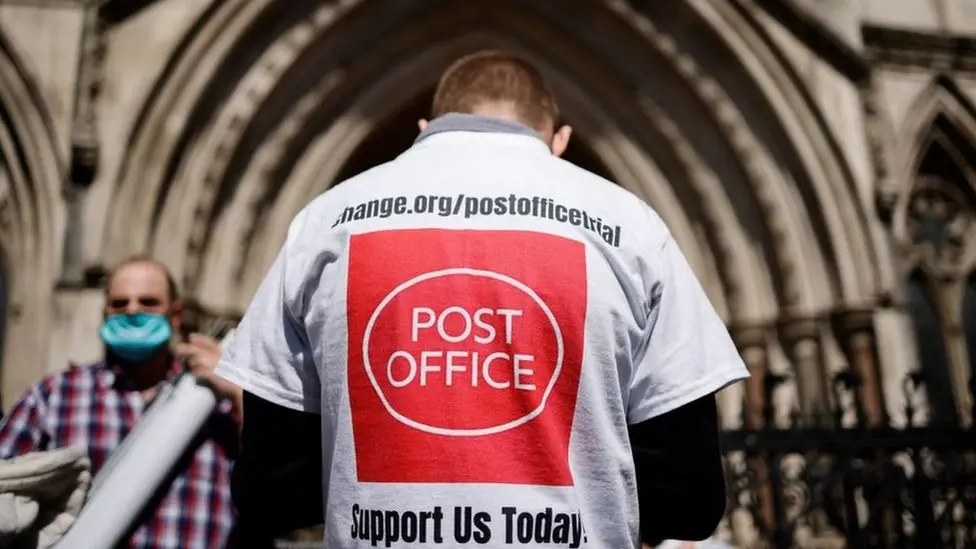Government to review Post Office-style prosecutions

A Post Office miscarriages-of-justice campaigner at the High Court
- Published
The government is to review the oversight of private and non-police prosecutions, in light of the Post Office Horizon scandal and wider controversies that suggest there may be insufficient safeguards to prevent abuse.
Private prosecutions are cases brought to criminal courts without the involvement of the police or Crown Prosecution Service.
The consultation, in the new year, will also look at whether there should be more oversight of organisations with powers to launch specific prosecutions, such as railway companies, the DVLA or the BBC over non-payment of the TV Licence fee.
It will also look at the single justice procedure - the fast-tracking of minor prosecutions without a court hearing.
In 2020, MPs urged the then government to strengthen safeguards around private prosecutions.
And on Thursday, Justice Minister Heidi Alexander told BBC News the new government would now follow up these concerns.
The Horizon scandal revealed the Post Office had failed to ensure its private prosecutions of sub-postmasters were appropriate - and a public inquiry is looking into what went wrong.

Heidi Alexander: The review follows concerns raised by MPs four years ago
And on Thursday, Alexander told BBC News: “We've seen, through things like the Horizon scandal with the Post Office, private prosecutions being brought which resulted in wrongful convictions.
“Not quite as extreme as that is what happens to some vulnerable people through the use of the single justice procedure.
“Some of the time, organisations are prosecuting individuals where perhaps the public interest in that prosecution hasn't been proved.
“We want to talk to these organisations so that we can improve the safeguards, so that we make sure that justice and the administration of justice is done fairly.”
There is no public register of private prosecutions - but it is widely thought there could be about 300,000 such cases a year.
Meanwhile, magistrates deal with about 770,000 prosecutions a year behind closed doors under the fast-track single justice procedure (SJP).
Fare dodging
These are paper-based prosecutions in which someone is accused by post of a minor offence, such as a car-insurance violation, and has to defend themselves by letter before a magistrate reaches a verdict behind closed doors. There’s no hearing unless the defendant insists on one.
But 550,000 of those accused never even replied, Alexander said, raising questions about how many understand the consequences.
“They don't enter a plea one way or another,” she said.
“It just heads straight off to the magistrates' court.
"And so I think, in the round, we need to improve the way in which the single justice procedure is operating.”
Questions around the SJP’s safeguards grew this year, after a landmark court ruling found up to 74,000 fines should be quashed because railway companies had been wrongly using the procedure to prosecute people accused of fare dodging.
The government would not scrap the SJP, Alexander said, but there was a case for stronger safeguards, including ensuring all cases were justified.